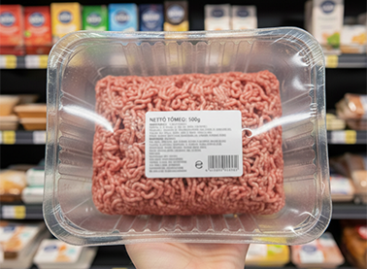Miklós Nagy: ‘The SUP directive was hastily passed legislation’
Our magazine interviewed Miklós Nagy, secretary general of the Hungarian Association of Packaging and Materials Handling (CSAOSZ).
– How useful is the banning of single-use plastics?

Miklós Nagy
secretary general
Hungarian Association of Packaging and Materials Handling
– Many people think single-use plastics (SUPs) were banned. Actually the EU directive lists seven measures for eleven different products and only one of these is a ban. Hungarian legislation has adopted five of these seven measures.
– It seems to be a very complex system…
– This is the case, yes, but the ban got the biggest attention – in spite of the fact that the regulations only affect a small proportion of Hungary’s plastic and packaging use. In practice this means that the new rules will produce a few-percent decrease in plastic use, but their significance lies more in shaping the attitude of consumers.
– What do you think about the new rules?
– The SUP directive was hastily passed legislation. I don’t see the point in banning drinking straws that weigh less than 1 gram, because we don’t even know how big the CO2 emission is for plastic and paper straws. As for cutlery, I doubt that the alternatives made of wood are hygienic or sustainable.
– Where do you see contradictions in the new rules?
– For instance crisps are typically eaten straight from the bag. Sugar is also packaged in a bag but we don’t have it from the bag, so it doesn’t fall under the scope of the directive. My view is that it isn’t specified clearly enough which product groups are governed by the SUP directive and which aren’t.
– What results did the forum on SUPs organised by CSAOSZ and ÖKO-Pannon bring?
– As the directive is very difficult to comprehend, the European Union prepared a guidance document and we ‘translated’ it relying on our knowledge. Minimum 150 people participated in this forum and since then we have also organised a course for the Federation of Responsible Food Manufacturers (FÉSZ).
– This year CSAOSZ organised the HUNGAROPACK Hungarian Packaging Competition for the 38th time. Are you satisfied with the entries and the results?
– Most of the packaging designs focused on sustainability. Another interesting thing in connection with the contest was that the designs were backed with calculations for transportation packaging solutions. This means that the classic and upgraded solutions weren’t only compared technologically, but also from a climate protection perspective.
– Which way is the packaging industry heading?
– It is definitely going in the direction of sustainability. I have already held cardboard in my hand, which can be used for making cups without any plastic coating. China and South Korea have reached this packaging level already! Innovations like this will soon enter the Hungarian market too, the big question is when the market will be ready to adopt them.

The SUP directive is more to shape attitudes than to affect the everyday practice
– What is Hungary’s position on the international packaging map?
– In the past we used to say that a country’s packaging industry can’t be different from the level of its industrial development. This is still true, as we are using the same technology as the packaging companies in Western Europe, the only difference is that there are two modern machines in a Hungarian factory and ten in a Western European one.
– What would you say to those who are still reluctant to accept packaging?
– Packaging is good, because it prevents the occurrence of bigger problems: the environmental load of any product is several times bigger than that of its packaging. If we throw away a loaf of bread because it goes bad, the 95-percent of its environmental burden that comes from making it was pointless. //
Related news
Sz. Variant from Debrecen won a WorldStar award with a Stühmer packaging
🎧 Hallgasd a cikket: Lejátszás Szünet Folytatás Leállítás Nyelv: Auto…
Read more >Related news
ZEW: Economic expectations worsened in Germany and the euro area in February
🎧 Hallgasd a cikket: Lejátszás Szünet Folytatás Leállítás Nyelv: Auto…
Read more >







